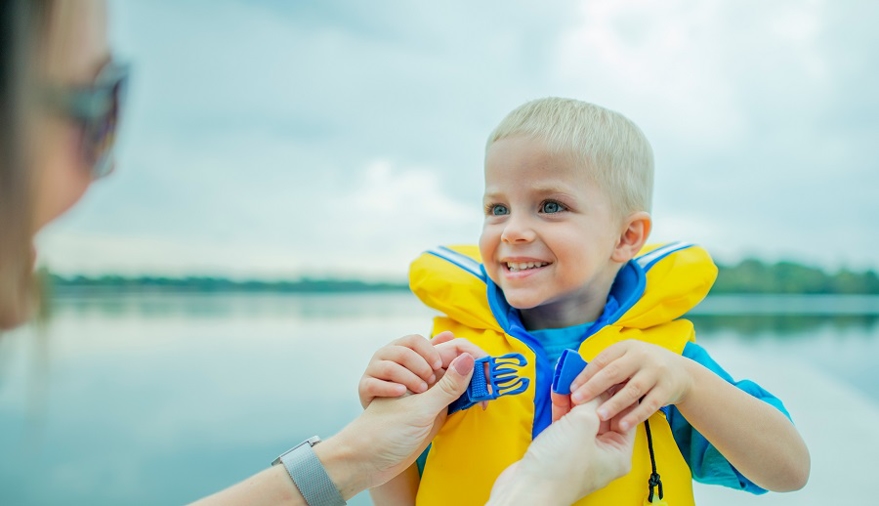These boating safety tips can be lifesavers
Jun 17, 2019

Boating may be a leisure-time activity, but that doesn’t mean you can be lax about safety when you’re on the water.
Here are three good reasons to put safety first when you’re boating:
- Four out of five boating fatalities in 2017 were due to drowning, according to the National Safe Boating Council.
- Nearly 85 percent of those who drowned were not wearing life jackets.
- Alcohol use is the number one known contributor in fatal boating accidents.
Keep your boating excursions enjoyable and safe by paying heed to the following safety advice.
Life jackets save lives
Everyone should be wearing a life jacket at all times on the water. Whether you’re on a stand-up paddleboard or a larger boat, you, your children and your pets should all be wearing life jackets.
Life vests and jackets come in a variety of forms for a variety of activities. For instance, there’s a pocketed jacket designed specifically for fishing.
Here are some quick tips:
- Use only U.S. Coast Guard–approved life jackets.
- Make sure everyone’s life jacket fits properly—it should be neither too small nor too big. Do not put children into large life jackets they can “grow into.”
- Read the label to be sure the life jacket is recommended for your activity.
- When you wear your life jacket, ensure that it’s fastened correctly.
- Wear your life jacket at all times. Boating emergencies can happen in an instant, and there may not be time to retrieve a life jacket that’s been stowed.
A little education goes a long way
If you plan to captain any sort of vessel, you should take a boating safety course approved by theNational Association of Boating Law Administrators (NASBLA). Many of these courses are offered online and can save you money on your boat insurance.
Boating classes can help you learn important navigation rules. These include such things as:
- The operator’s responsibilities.
- How to maintain a lookout.
- Keeping a safe speed.
- Who has the right of way at crossings.
- Meeting another boat head-on.
You should also know your state’s boating laws. These laws can change from state to state, as can the penalties for violation.
Before you hit the water
Check your equipment.Schedule a vessel safety check with your local U.S. Coast Guard Auxiliary or U.S. Power Squadrons. These safety checks are free of charge.
File a float plan.A float plan includes details about the trip, your boat, the people who are going, your communication equipment, when you expect to return and your emergency contacts. Leave your float plan with someone you trust.
Check the weather.Know the latest marine forecast. Regularly check back for changing conditions. Dress appropriately for the weather. Bring an extra set of clothes in case you get wet.
Stay in communication.Be sure to have at least two communication devices that work when wet—such as satellite phones or VHF radios—on board. You can’t rely on cell phones in an emergency.
More water safety tips
Water sports extend beyond boating. Followthese safety tipsfor a fun, accident-free summer.


